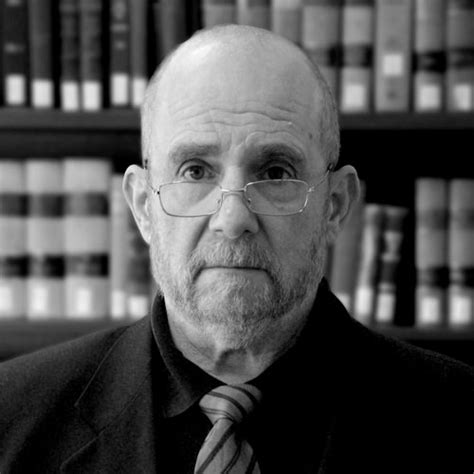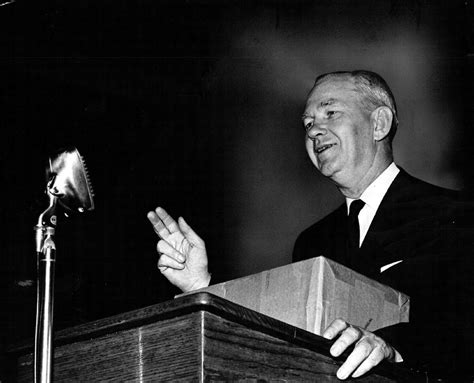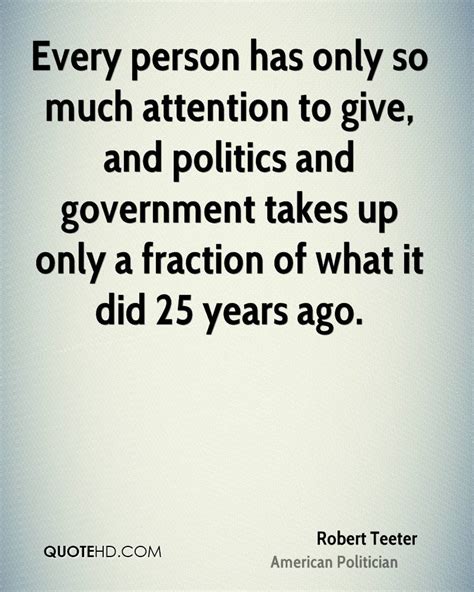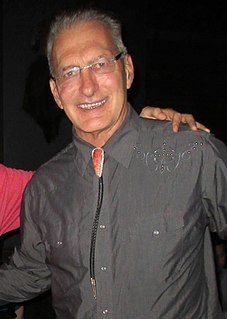A Quote by Bob Barr
Far too many people have been swept into the post-9/11 system of fear that is the basis of all public policy these days.
Related Quotes
When people run a business and open their door to the public, they must serve the public. That doesn't mean they can't say whatever they want to say. It doesn't mean they can't believe whatever they want to believe. Those are protected also. But businesses must serve the public. And that's a principle that we fought for in this country over many, many decades, when some were invoking religious freedom as an excuse to deny people on the basis of their race, on the basis of their religion, on the basis of sex and on the basis now of sexual orientation. Let's not confuse one thing with the other.
It is said that the fear of public speaking is a fear greater than death for most people. According to psychiatrists, the fear of public speaking is caused by the fear of ostracism, the fear of standing out, the fear of criticism, the fear of ridicule, the fear of being an outcast. THE FEAR OF BEING DIFFERENT PREVENTS MOST PEOPLE FROM SEEKING NEW WAYS TO SOLVE THEIR PROBLEMS.


































